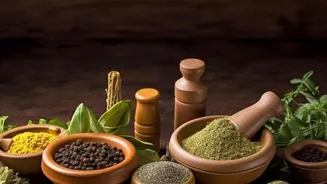Discover the magic of Indian spices! Uncover their health benefits & how to use them in your daily meals!
India, the land of vibrant colours, diverse cultures, and of course, incredibly flavourful food!
The secret behind the magic of Indian cuisine lies in its spices. These aren't just flavour enhancers; they're packed with amazing health benefits that have been recognised in Ayurveda for centuries.
Let's take a closer look at eight common Indian spices and uncover their incredible health properties. Understanding these spices can help you not only cook amazing dishes, but also boost your overall well-being naturally. So, ditch those bland meals and get ready to spice up your life!
This guide will give you a simple overview of what makes these spices so good for you, without getting into complicated scientific jargon. Get ready to learn some amazing facts!
Turmeric's curcumin fights inflammation, boosts immunity & aids healing
Turmeric, (haldi) the golden spice, is a staple in almost every Indian household. It's known for its vibrant yellow colour and its slightly bitter, earthy flavour. But what makes turmeric truly special is curcumin, its active compound.
Curcumin is a potent antioxidant and anti-inflammatory agent which means it fights harmful free radicals and reduces inflammation in the body. This makes turmeric beneficial for managing conditions like arthritis, reducing pain, and promoting overall joint health.
It also boosts brain function and lowers the risk of brain diseases. In India, haldi doodh (turmeric milk) is a popular home remedy for colds and coughs. It is believed to boost immunity and helps in quick recovery.
Turmeric is often applied topically to wounds due to its antiseptic and antibacterial properties, promoting faster healing. Incorporating turmeric into your daily diet is easy – add it to your vegetable curries, daals, or simply mix a pinch into your warm milk. Remember, a little goes a long way!
Turmeric has been used to manage skin for years and it is a common ingredient in natural beauty care.
Cumin aids digestion, boosts metabolism, rich in iron, antioxidants
Cumin (jeera), is easily available. These tiny brown seeds have a warm, earthy flavour that is slightly bitter. Cumin is an excellent digestive aid. It stimulates the secretion of digestive enzymes, helping to break down food more efficiently and prevent bloating and indigestion.
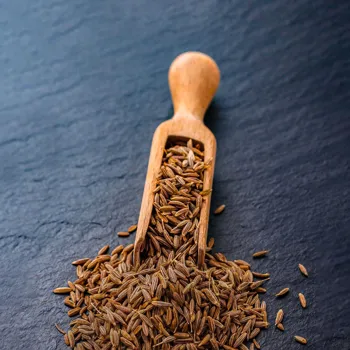
Cumin is also a good source of iron, which is essential for carrying oxygen in the blood and preventing anemia. These little seeds are packed with antioxidants, helping to protect your body from damage caused by free radicals.
Many studies have shown that jeera can help with weight management by boosting metabolism and reducing body fat. Roasting the cumin seeds before use intensifies their flavour. You can add jeera to your vegetable dishes, rice, or even sprinkle it on yogurt.
Cumin seeds can also be boiled in water to make a refreshing and healthy cumin tea. This spice has been used for a long time by women as after birth tonic.
Coriander: versatile spice with health benefits for digestion and heart
Coriander (dhania), available as seeds and leaves, is a popular spice in Indian households. Coriander seeds have a warm, citrusy flavour, while the leaves have a fresh, slightly grassy taste that enlivens many dishes. It helps lower blood sugar levels.

It is useful for people with diabetes or at risk of developing the condition. It's also a good source of dietary fiber, promoting healthy digestion. Coriander aids digestion by helping enzymes and other digestive juices to work effectively.
Coriander consumption has been linked to regulating cholesterol levels and improving heart health. Coriander leaves are packed with vitamins and minerals, including vitamin C and potassium, which are essential for overall health and well-being.
Add coriander leaves as a garnish to your curries, salads, and soups for a burst of freshness. You can also roast the coriander seeds and grind them to make a flavourful spice powder.
Cardamom: versatile spice with health benefits and culinary uses
Cardamom (elaichi) the "queen of spices," is known for its aromatic flavour and its sweet, slightly menthol taste. It can improve digestion. People with heart burn, gas, swelling of abdomen after food can eat this. It helps in reducing blood pressure.
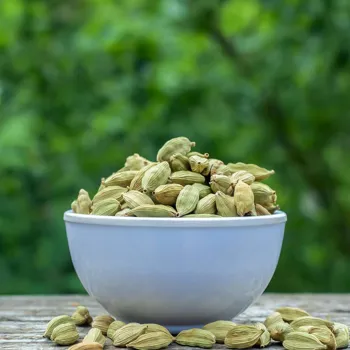
It has anti-inflammatory properties, which can help reduce inflammation and protect cells from damage. It is often used as a mouth freshener. Chewing on cardamom pods after meals can help freshen breath and promote oral hygiene.
Cardamom is also a key ingredient in many Indian desserts and sweet dishes. Add a few cardamom pods to your tea or coffee for a unique and refreshing flavour. You can also grind the pods and use the powder in your baking recipes. It is also use as a flavoring ingredient in many masala chai powders.
People add it during festivals in sweets.
Ginger: versatile spice for digestion, pain relief, blood sugar control, colds
Ginger (adrak), is a versatile spice with a pungent and slightly spicy flavour. It is famous for its ability to soothe digestive problems like nausea, bloating, and indigestion! It has anti-inflammatory compounds called gingerols, which alleviate various pains and inflammatory conditions.
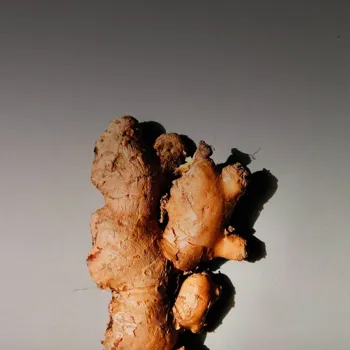
People use it for different kind of body spasm. Ginger can help lower blood sugar levels and improve insulin sensitivity! This is useful for people with diabetes or those at risk of developing this condition. Ginger is often used to relieve cold and flu symptoms.
Add ginger to your tea, curries, or stir-fries for a warm and flavourful boost. You can also prepare ginger juice by grating fresh ginger and squeezing out the juice.
Cinnamon: benefits for health, heart, immunity, and brain function
Cinnamon (dalchini), is a cinnamon tree’s inner bark and is known for its sweet, warm flavour. Cinnamon lowers blood sugar levels and increases insulin sensitivity! It is an amazing spice for people suffering from diabetes.

It can reduce harmful LDL cholesterol levels and increase beneficial HDL cholesterol, supporting heart health. The antimicrobial properties helps preventing bacterial and fungal infections, boosting the immune system! Cinnamon can also improve brain function and memory.
Cinnamon can be added to your tea, coffee, or oatmeal. For baking people prefer to use this. It can also be used in sweet and savory dishes.
Spices offer health benefits, enhance well-being
These spices are a treasure trove of health benefits that can enhance your well-being and improve your quality of life.
Use Indian spices moderately for flavor and health benefits
Remember to use these spices in moderation as a part of a balanced diet. If you have any pre existing health conditions, it is always recommended to consult with a healthcare professional before making significant changes to your diet. Enjoy the flavors and health benefits of Indian spices.
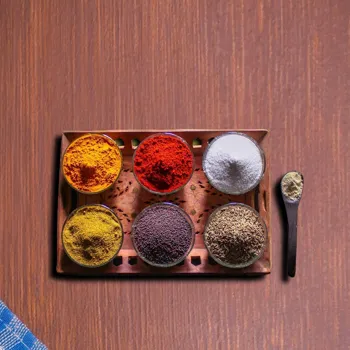
Boost your overall health by learning about the spices and using them for cooking.
AI Generated Content. Glance/InMobi shall have no liability for the content